Vientiane, Laos - Aromatic Sinouk Coffee
Vientiane, Laos – a place I dreamt to go years ago and it became a reality last December 2016 when my name was announced as one of the participants to attend a workshop organised by APO in Laos. I am thankful to the Director of APO (Asian Productivity Organization) based in Tokyo, Japan, Joselito Bernado @Jojo, for this priceless opportunity of a lifetime!
I was overwhelmed when I first heard the name Mr. Sinouk Sisombat, who introduced Laos coffee to the world. Meeting him personally was indeed a beautiful experience. I salute this man for his determination and eagerness to bring Laos known through its coffee production.
Here it goes…….
Beautified by unspoilt nature, surrounded with mountainous sceneries and hundreds of big and small waterfalls, Laos shines as one of the frequently visited countries by many travellers especially those who enjoy doing outdoor activities and ready to sample simplicity of life in a slower pace but with traditional touch offered by the rural people. Life in Laos is peaceful with its people living harmoniously in simple way.
There are 18 provinces altogether where most of the places are still being developed. However, many areas are being recognised as potential tourism spots.
In a southern part of Laos, a province called Luang Prabang lies a place called Pakse was said to be formerly a volcanic area centuries ago, leaving its soil to be fertile and productive as a result of lava over-pouring from the volcanic mountains in the neighbouring countries. Today, Pakse is developed into a coffee plantation.
Thanks to one of the first Laos nationality who went many steps ahead to bring Laos to the European countries introducing his very own home-grown coffee.
All began in 1994, when Sinouk Sisombat returned back Laos after having spent more than 30 years of his life in France. Eagerly wanted to do something for his early childhood homeland, he chose coffee to build up his business activity in Laos. Since then Laos was known for its premium coffee production.
Sinouk Sisombat, the owner of Sinouk Coffee, one of the premium beverages mostly available at the high end areas in many countries in Europe. The Beans travelled all over Asia and ended up in France, Italy, England and many other parts of the world.
“I am proud to be part of this coffee industry, especially when the product is coming from my homeland. Indeed this is the best achievement I have so far and I am still looking ahead for more things to offer to the world,” said Sinouk proudly.
“Right from the beginning of my journey in coffee business, I had one vision to reach and that is to make Laos coffee known worldwide and my own brand the SINOUK COFFEE which was created in 2003, be the leading coffee brand in Laos as well as abroad,” said the soft-spoken Sinouk with affirmation.
He realised that Laos people generally do not consume coffee. Therefore, he tried to introduce Laos coffee outside the country. He was pleased that it was well received by the people of different nations. Sinouk attributed the success of his business to the indigenous people in his organisation who gave their loyalty and dedicated their life learning and gaining knowledge about coffee. They had struggled together with him from the beginning.
The coffee museum is at the Coffee Pavilion located at Khamphengmeuang Road in Vientiane while his plantation is at Southern of Laos in Luang Prabang province.
“My plantation is in another province in the southern area but my coffee restaurants are everywhere. We only serve the best coffee to our visitors. You may try it here,” he said as he explained about his products to the delegates who visited his coffee museum in Vientiane.
“Sabaidee..” Sinouk greeted the delegates of 30 over people to his coffee museum. (which means hello or welcome in Laos language). Delighted with the presence of many nationalities, Sinouk personally took them for a tour to his coffee museum.
As he brought the entourage around, the aroma of roasted coffee beans was quick to distract the attention of the visitors. Many were starting to ask where the fragrance were coming from.
The alluring smell from the roasted beans was very strong and pleasant, prompting Sinouk to request the group to bear with him for a short time before they could sample the drink. It was from the kitchen where staff were busy brewing, displaying and labelling the types of coffee for the anxious visitors.
“In this museum, there are explanations about how my plantation started. The history of my product is very important for people to know so that they appreciate what they consume. This is part of education and an important knowledge,” said Sinouk.
He shared that the beans were first roasted according to the temperature set. There are a few types of roasted beans where the temperature set differ from one another. One of the types is called Pure Arabica and Arabica Robusta.
“To get a stronger taste, the beans are roasted with higher temperature. When you want to taste it (and not drink it), it is important to first smell it slowly, then sip it once and let the liquid be in your mouth for a few seconds, do not drink it,” he explained.
In the brochure, one can read some phrases like ‘From our plantation to your cup’ and another one ‘Outstanding quality Laos Coffee? Sinouk only”.
Sinouk explained that the good grade of coffee beans is due to the suitable cool climate, good rainfall throughout the year plus the volcanic fertile and organic soil in the area.
“In Pakse, as soon as the rains stop in mid-October, the handpicking cropping work would start. It is done carefully combined with highest care in selection of the best ripe cherries, and then skilful processing method makes us obtain the best quality of fully washed Arabica green beans.”
He further said the coffee plantation is the birth of Laos very own coffee. They have built up resort facilities in the plantation with magnificent landscaped botanic garden to welcome visitors all year long. It became one of the major tourist destinations of Southern Laos.
“The unique beauty of the site enhances the quality of our products and our brand name. We have linked coffee as a tourism product in Laos,” said Sinouk.
One of the delegates from Asian country was quick to point out that the tasting of coffee liquid is similar to tasting wine.
“Coffee is actually gaining its popularity among the Asian people. There is a market for this. I think Laos will become one of the important nations to the world in times to come in coffee industry. As it is now, Europeans have developed the love for this coffee,” shared one of the members.
Another delegate Dr. Stephen Pratt, an Australian living in Hong Kong viewed coffee as important commodity, saying it can turn into a sustainable coffee tourism.
The tour to the coffee museum created much amusement among the members of different nation when Sinouk explained that drinking coffee everyday can improve ones’ health aside from drinking it as beverage.
“Drink coffee everyday, no problem. It is good for your health,” said Sinouk laughingly.
Jisoo Yun, a Korean working in Japan shared the aroma caught her attention first before anything else. She said smell of the coffee is the attraction and could dwell the visitors into a very soothing ambience.
“The atmosphere changes when the aroma is in the air. You just can’t resist it, you need to drink it to satisfy your palate only then you feel the tour is complete,” said Jisoo who went around tasting the different types of brewed coffee together with Dr. Stephen.
Sinouk went on to encourage visitors to know in-depth about how to identify quality flavours of coffee. He said first to identify the variety and its processing method.
‘There is a world of difference between washed and dried-processed coffee,” he started his explanation in a more technical way.
He said taste is used to access the basic flavour orientation of the coffee which can be perceived by the tongue and the taste buds. Sweetness determined the natural sweetness of the coffee.
Sinouk had developed his land (in Pakse) not only as coffee growing area but today it has become tourist destination where chalets and bungalows are built for those who would like to spend a few days in the plantation exploring how coffee is being produced and processed.
“I have five daughters and most of them are settled in France. My eldest daughter is with me handling my business. She is very talented person with mind of her own.
Before she joined me, she was once attached with an American company based in Singapore. She used to study in France. So having such mind set with apt experience running my business, I am sure she could carry out doing good with what I have started,” said hopeful Sinouk.
He recalled a few years ago how he had longed to find a key person who could look into his business in the aspect of human resources, skills and others. However, he realised it was impossible to get one who could carry out such job.
“Many years ago, I had this lady staff who came from one of the most rural places in a province in Laos working for me as a gardener. She was illiterate, no knowledge of anything and all she wanted was to get some income to help her poor family in her village. I took her when my coffee plantation just started.
Over the years while I was searching for someone to take charge of higher responsibility, I could not get anyone despite having interviewed many seemed qualified,” he shared.
He said the staff whom he employed as gardener (and was illiterate at that time) today is sitting in his management team overseeing the welfare of few hundreds staff in his plantation.
“Loyalty pays. She has been my loyal staff and was willing to learn things and struggled herself to reach to the higher level. Today she is no longer illiterate because of her willingness to learn by herself. I am proud of her.
I can leave everything to her while I am away in France with my family,” he said.
Sinouk further revealed that all of his workers are local people who are mostly from poor background in various provinces in Laos. He stressed that his people have played important part for his business as well as for the whole country in their contribution of human resources.
“I owe my business to these people. They are hardworking and honest.”
“I have seen my business progressing very well. The name Sinouk coffee is everywhere now in the Europe. I believed I have made my country proud of this product. I owe it to the land we have. They are so fertile and with quality due to the spread of lava happened long ago,” recalled Sinouk.
Chintana Siaphay, a local from Vientaine disclosed that there are many types of coffee produced in Laos. However, Sinouk coffee is branded as the premium coffee due to its quality and the way it is processed.
“Mr. Sinouk is a humble man. He just wanted to plant coffee and sell the products to the people who want to drink coffee. But he has gone extra mile to introduce Laos through this product to many more advanced countries like the Europe,” said Chintana, who is proud of Sinouk’s achievement in bringing Laos as part of the contributing nation in the world.
Coffee had longed become the drink of those who appreciate its goodness. Over the times, it has evolved and no longer just a beverage but acts as an added flavour to cuisine and desserts.
Coffee enthusiasts had created many types of dishes having coffee as part of the ingredients.
Laos, a small nation surrounded with countries such as Thailand, Cambodia, Vietnam, Myanmar and China has contributed much excitement in the coffee business.
Although with limited infrastructure, Laos can become one of the most visited places in the world. When the aroma of Sinouk coffee spread rapidly and travelled afar in every nook of the world, people of other nations would be enticed to come to Laos to visit the birthplace of Sinouk coffee.
Mr. Sinouk, in fact invited me to visit his coffee plantation located at Southern of Laos in Luang Prabang province.
Well, this is definitely another outlet for me to write beautiful stories about Laos. I am in search of a partner to go with. Any Steemian who is interested for Laos adventure, do let me know. Let’s make this our wishlist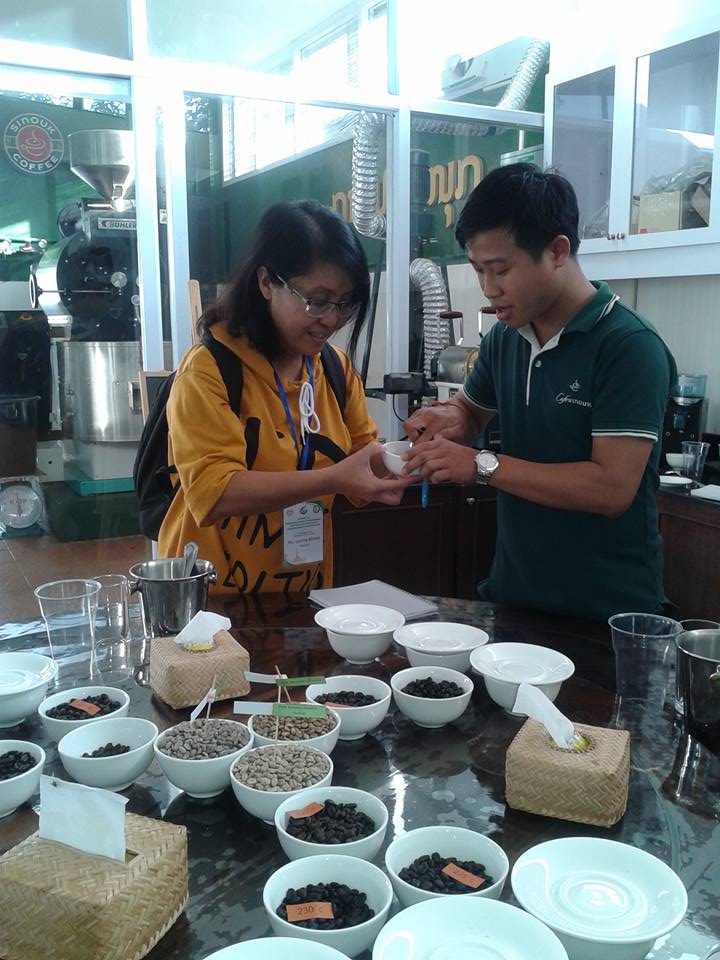 .
.
It’s just me
Lorena – Writer on-the-go
Steemian in-the-making
I am the writer in my own right…
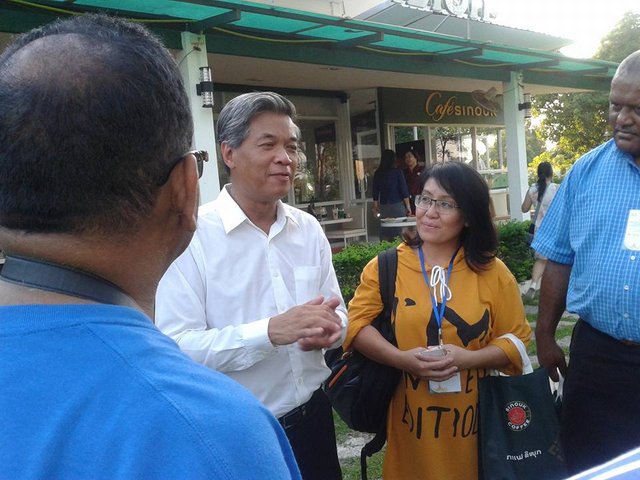
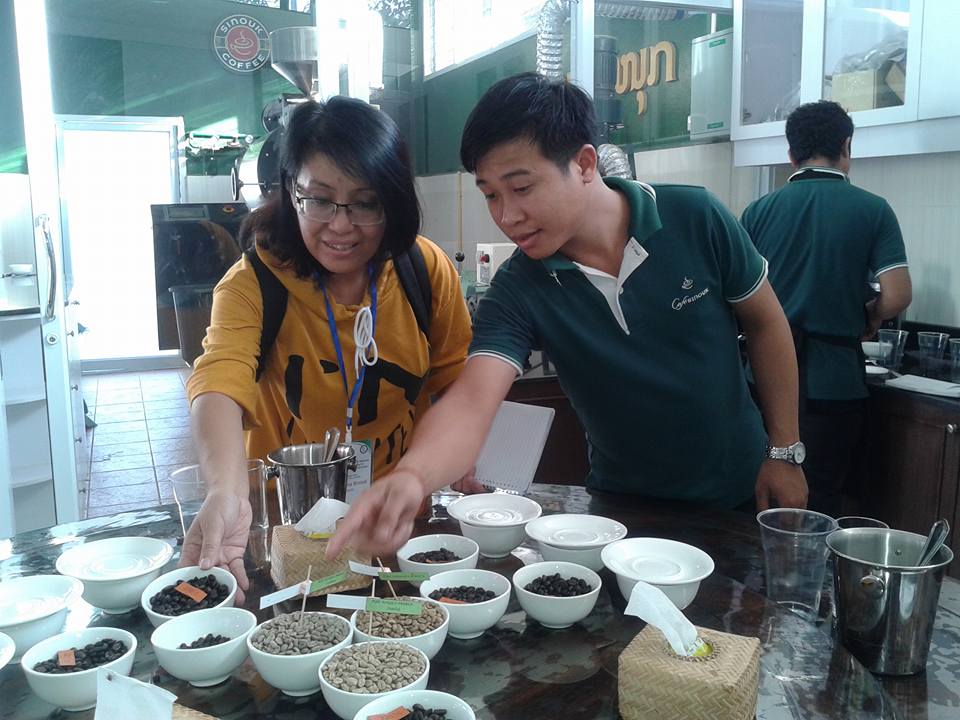
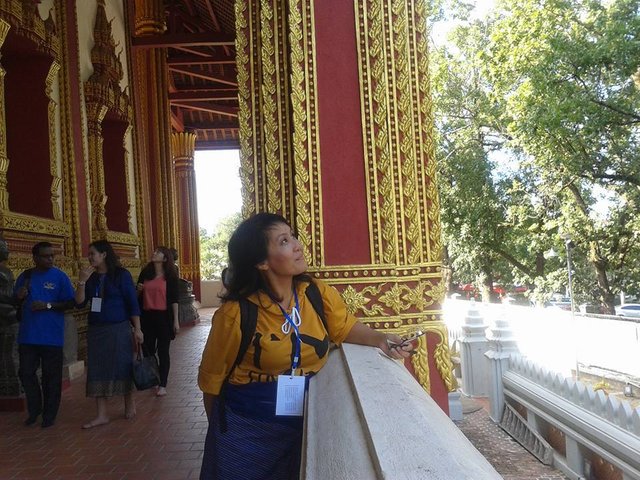
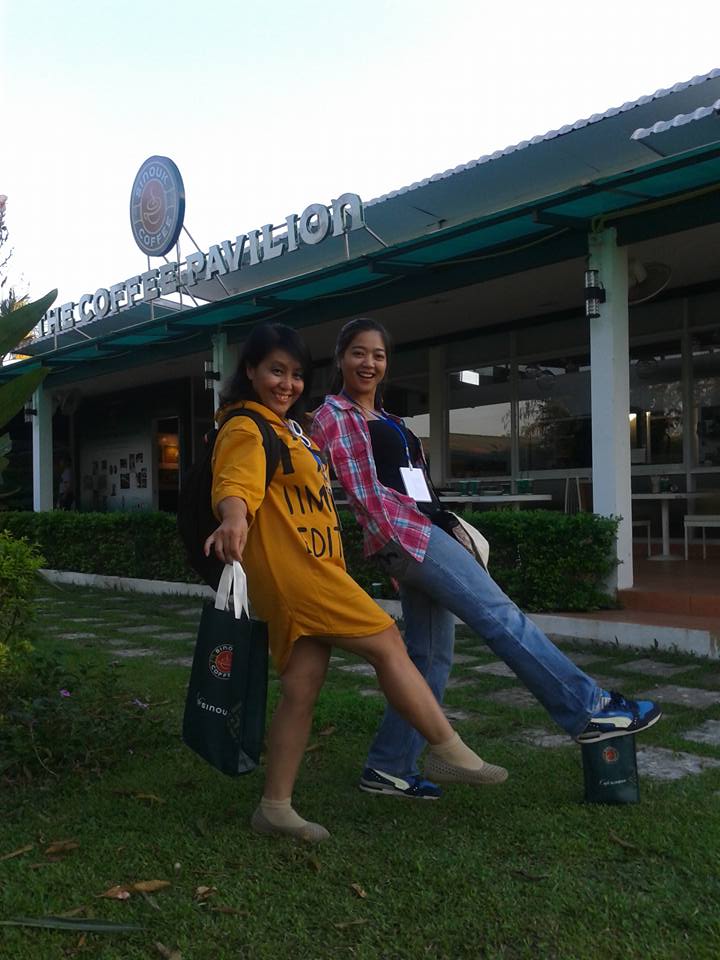
Well done and keep it up!
Thanks madeve
Coffee lovers would love this place. Unfortunately I can't drink coffee for health reasons.
Thanks coloringiship. Laos is a lovely place to visit